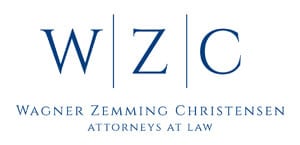What Constitutes a Breach of Fiduciary Duty?

In some legal, business, or financial relationships, one party places their trust in another party to act in the first party’s best interests. These relationships are usually called fiduciary relationships. Someone who acts as a fiduciary to another has legal duties to that party. If the fiduciary breaches their duties, the party they were acting for may be entitled to file a legal claim. The injured party could pursue compensation for the losses they suffered because of the breach or seek to obtain other legal relief, such as unwinding unauthorized transactions. But what kind of actions or behavior constitutes a breach of fiduciary duty?
What Is Fiduciary Duty and What Constitutes a Breach of It?
“Fiduciary duty” refers to a relationship where one party to the relationship is obligated to act solely in the interest of the other party within the context of the relationship. In addition, the party with a fiduciary duty also has an obligation to ensure that no conflict of interest arises between themselves and the party they owe a duty to. Should such a conflict arise, they must notify the other party or recuse themselves from the relationship.
Common fiduciary relationships include:
- Attorneys and clients
- Financial advisors and clients
- Guardians and their wards
- Controlling stakeholders in a business venture versus minority stakeholders
- Corporate directors/officers and shareholders
- Trustees and beneficiaries
In certain circumstances, an employee may also owe fiduciary duties to their employer, often when the employee has been entrusted with knowledge or assets that represent a competitive advantage for the employer.
A breach of fiduciary duty occurs whenever someone who has the duty fails to act reasonably and responsibly in the best interests of the party to whom the duty is owed. Usually, a breach occurs when a fiduciary takes actions that violate or harm the interests of the fiduciary’s client or that benefit the interests of the fiduciary or a third party at the expense of the client.
Common Examples of Breaches of Fiduciary Duty
Common examples of actions that may give rise to a breach of fiduciary duty include:
- Misappropriating or sharing an employer’s trade secrets or confidential information
- Usurping an employer’s business opportunities
- Acting on behalf of an employer’s competitor
- Mismanaging or commingling company funds
- Withholding or concealing material information from partners or shareholders
- Failing to disclose conflicts of interests
- Self-dealing including taking business opportunities from a business venture or partnership or transacting for one’s own profit at the expense of the client
- Preventing shareholders or owners from exercising voting or management rights
- Denying access to corporate records
- Taking illegal or unethical actions to force out minority stakeholders
- Denying dividends or authorizing excessive compensation for oneself
How We Can Help
When you have a potential breach of fiduciary duty claim, the lawyers at Wagner Zemming Christensen, LLP, can help you seek accountability and financial recovery by:
- Thoroughly investigating your breach of fiduciary duty claims to recover important evidence, including financial records, email communications, and meeting minutes
- Working with expert witnesses to help us persuasively argue how your fiduciary’s actions impaired your rights and caused you harm
- Calculating the full extent of your financial losses so that we can pursue full recovery for you
- Identifying liable parties and sources of compensation
- Filing a demand for compensation on your behalf and aggressively pursuing a settlement that can provide you with the recovery you deserve
- Advocating on your behalf in court or at trial, if necessary, to demand accountability for you
If you believe you have suffered a loss due to a breach of fiduciary duty, reach out to Wagner Zemming Christensen, LLP, today. Call us at 951-686-4800 for a confidential consultation where you can discuss your legal rights with a seasoned attorney from our firm.
